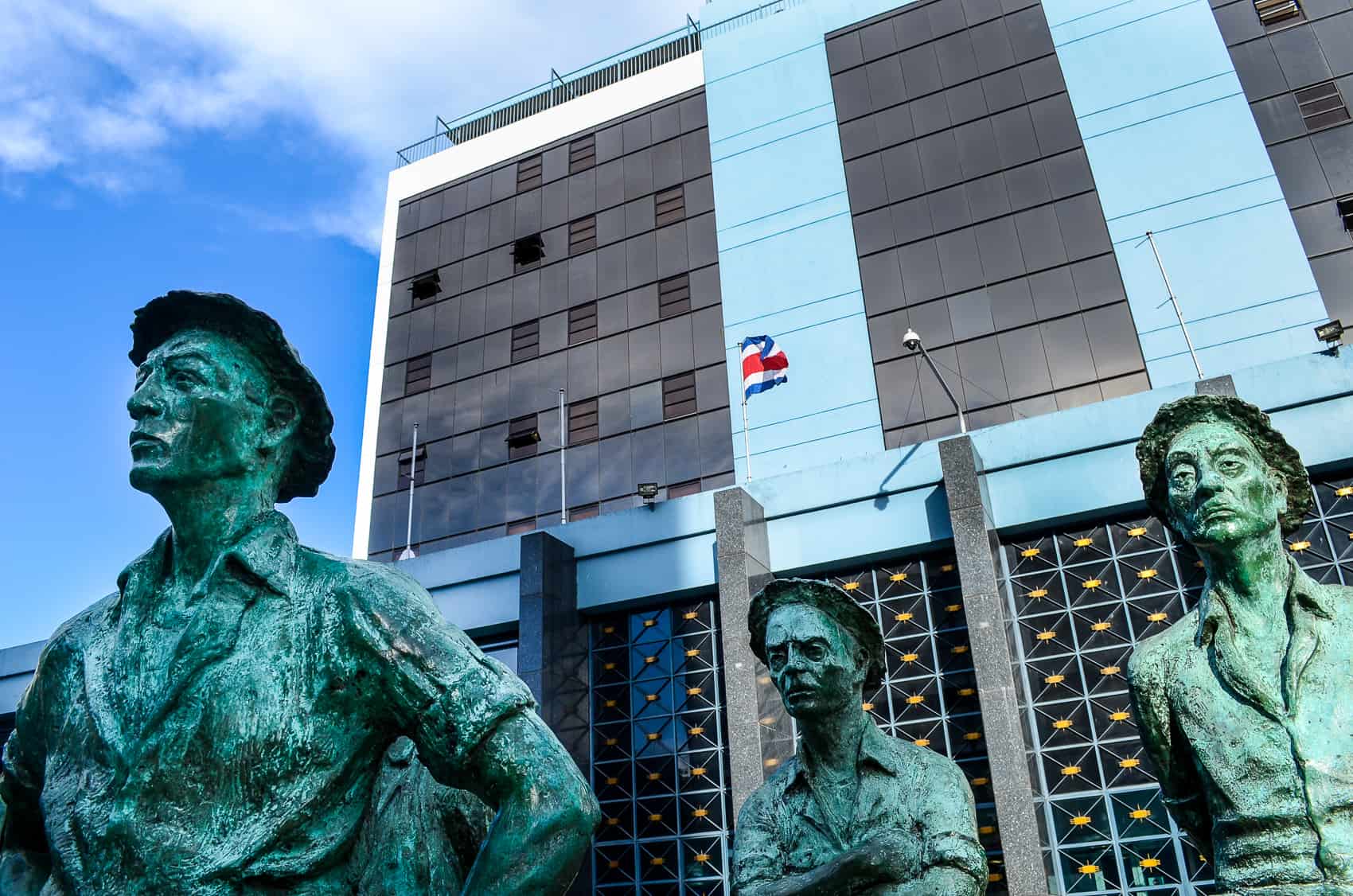The man picked to lead Costa Rica’s Central Bank rejected Citigroup’s decision to cut its economic forecast for the country in half after Intel and Bank of America said they would fire 3,000 people.
Olivier Castro, who was tapped to run the Central Bank by President-elect Luis Guillermo Solís, said the Central American nation’s $45 billion economy will expand 5 percent in 2015. That’s more than double the 2.2 percent outlook by Citi, which cut its forecast this month in the wake of the firings.
“Growth will be higher than that, especially because we’re beginning to see signs of greater growth in the world economy,” Castro, who is expected to take office May 9, said Monday in an interview in his home outside San José. “But also because of the work we will do to turn on the other engine of the economy, the domestic market.”
Solís and his economic team will seek to reassure investors in the wake of the firings and an 8 percent decline in the country’s currency this year, the most in Latin America after the Argentine peso. The incoming president has vowed not to raise taxes before 2016, saying he will focus on cutting wasteful spending and improving tax collection to narrow a budget deficit forecast to climb to about 6 percent of gross domestic product this year from 5.4 percent in 2013.
Citi, in an April 9 report by economist Jorge Pastrana, said that slower growth would affect the country’s balance of payments and pressure the currency. Press officials at Citi declined to comment when contacted by Bloomberg News.
“Intel’s exit will evidently affect exports in the country, since the high-tech sector has contributed greatly to the level of exports, but there’s no reason why it should put pressure on the colón,” Castro said.
About 21 percent of Costa Rica’s exports of goods last year were from Intel, the world’s largest computer-chip maker, according to investment promotion agency CINDE. The country’s second- and third-biggest exports were bananas and pineapples.
The Santa Clara, Calif.-based company said April 8 that it is cutting 1,500 out of 2,500 jobs in the country as part of an effort to consolidate some operations in Asia. The same day, BofA said it would be exiting some operations in Costa Rica, Mexico and the Philippines.
Castro, 73, who received a masters in economics from the University of Kansas and was head of Costa Rica’s state-owned Banco Nacional, said he hopes to tighten the currency band system, which has a floor of ₡500 per dollar and a crawling ceiling. The central bank has sold $340 million in the foreign exchange market this year to help stabilize the colón.
“The bank has so far intervened but has allowed the exchange rate to fluctuate in spikes,” Castro said. “Our idea is to allow it to move within a pre-established range in which the base would change every day.”
As other nations in Central America struggled to revive economic growth in the wake of civil wars, Costa Rica in the 1980s and 1990s moved to establish itself as a stable hub with a highly educated, lower-cost workforce and access to U.S., Asian and European markets. The country of 4.7 million people, which abolished its military in 1948, remains home to operations by Dole Food, Procter & Gamble, Amazon and Hewlett- Packard.
“The issue here is public investment, this country has a big infrastructure problem in terms of roads, ports, airports, etc.,” Castro said. “There are a large amount of resources that have been already allocated but work is slow and we need to accelerate these projects to create more jobs and grow more.”
Costa Rica climbed seven spots to 102nd in the World Bank’s annual “Doing Business” report this year, lagging behind China, Vietnam and Namibia. Moody’s Investors Service lowered its outlook on Costa Rica to negative from neutral in September, citing a rising debt burden and the budget deficit. Moody’s rates the country Baa3, putting it in the same category as Turkey and Iceland.
Seated on a beige couch and surrounded by family photos and diplomas, Castro recalled heading the Central Bank’s financial division in the 1980s, when Costa Rica followed Mexico in defaulting on its debt obligations.
“My team and I were in New York every Friday, getting yelled at by bankers,” he said, smiling.
The new administration will work to overcome the recent firings and ensure the country remains attractive to investors, he added.
“What happened with Intel and Bank of America is not the result of something the country did wrong,” Castro said. “What the next government will do is make this very clear, because the policies it will put in place will attract investment.”
© 2014, Bloomberg News

